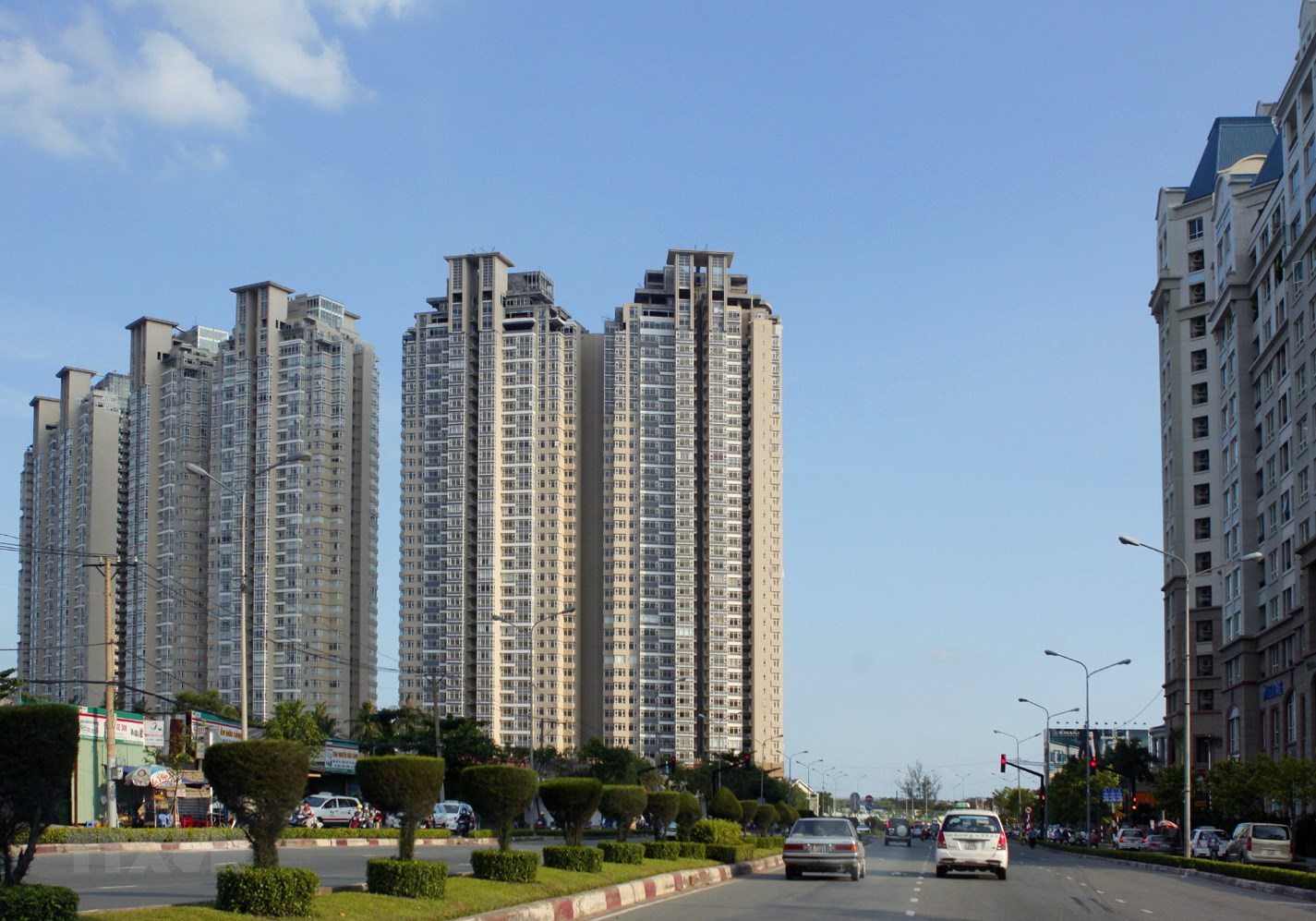
PM Nguyen Xuan Phuc has recently issued Directive No.11/CT-TTg to promoting stable and transparent development of the property market. (Photo: VNA)
Although the real estate market has recovered and got momentum since 2014, largely contributing to the country’s socio-economic development and stabilising the macro-economy, the sector still sees various potential risks, including oversupply in high-end segment, shortage of affordable houses, high prices of properties, and incomplete and unreliable database about the market.
In that context, PM Phuc ordered the Ministry of Construction to complete the draft revised laws on amendments and supplements to the laws on construction, housing and property business, add housing support policy for public servants, and revise construction standards for apartments, condotels, resort villas and officetels.
The Ministry of Construction was urged to join hands with competent ministries, sectors and localities to enhance inspections and ask real estate developers to build comprehensive technical and social infrastructure, fire-fighting and prevention systems before handing over houses and apartments to customers. They should work together to keep close watch on developments of the property market to have timely measures in response to market fluctuations.
Meanwhile, the Ministry of Natural Resources and Environment was requested to give instructions to organisations and individuals on land use rights of new forms of property like condotels, resort villas, and officetels. Besides, it should enhance inspections of land lease, ranting of land use rights, and land use at industrial complexes, urban development projects and resort tourism sites, among others.
The Ministry of Finance should work with relevant ministries and sectors to study rational financial institutions like housing savings fund, property investment fund and real estate trust fund to mobilise resources for the real estate market, the Directive said.
As for the State Bank of Vietnam, it is responsible for operating flexible monetary policies, controlling credit scale in line with macro-economic development, and tightening loans for the real estate sector. The bank must encourage credit institutions to allocate capital for social housing projects and low-cost commercial housing projects.
The People’s Committees of centrally-run provinces and cities must supervise market developments, and map out measures to stabilise the market and prevent any possible property bubble. While reviewing planning for urban areas and industrial parks, they should give priority to ensuring sufficient land areas for social housing projects.
Particularly, social houses, accommodations for workers, and functional areas for healthcare, education, culture and sports must be included in planning for new urban areas, industrial parks and education establishments.
Detailed inspections must be carried out for projects already receiving approval for investment planning. Investment certificates will be revoked for delayed projects in accordance with current regulations. Meanwhile, relevant authorities should work to remove bottlenecks for social housing projects and mid-end housing segment.


















